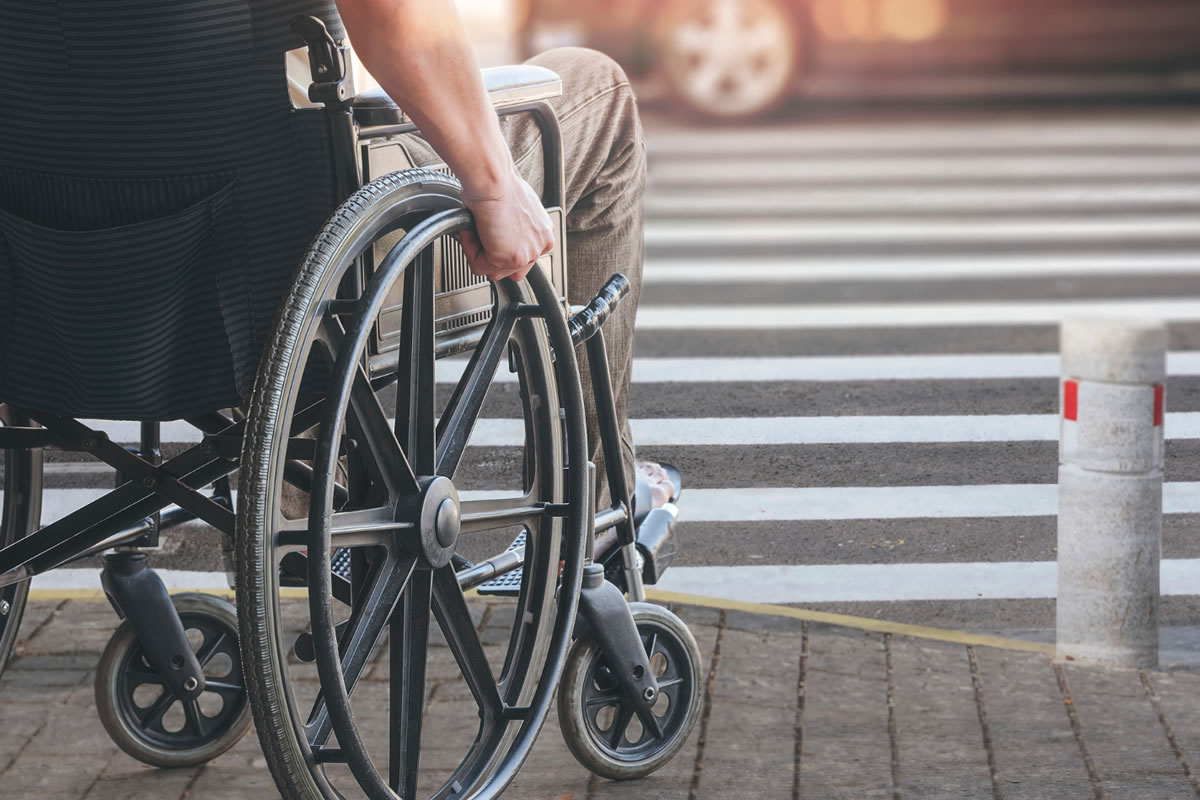
Whether you are in a wheelchair permanently due to a chronic disease or severe injury or just using one temporarily due to an accident or injury, life in a wheelchair is difficult to get used to. You may have had to give up driving, quit your job, or stop playing your favorite sport, and these are only a few of the significant adjustments you face. However, no matter what you are going through, there are many ways to make your transition to life in a wheelchair not just tolerable, but as fun and satisfying as possible. Experts from our disabled transportation service in Orlando offer these tips for adjusting to life as a wheelchair user.
Invest in a quality chair
Trust us. A quality wheelchair will make a massive difference in your quality of life. You will get around better, move around more freely, and reach things more efficiently in a customized, well-fitted wheelchair. It will also allow you more comfort to use your chair for long periods without getting restless and sore. There are many varieties of wheelchairs available. A few of the most popular are self-propelled manual chairs, attendant-propelled manual wheelchairs, electric wheelchairs, and standing wheelchairs.
Standing chairs are a relatively new technology that allows you to stand while strapped into the chair, which is incredibly convenient if you are allowed to stand but require additional support. In addition, if putting weight on your feet slows your healing process or causes pain, finding a suitable wheelchair is incredibly essential. You may get annoyed and frustrated with not being able to move in the right direction or reach items you need and be tempted to use your feet. Unfortunately, this can lead to further damage.
Once you find the best wheelchair to fit your needs, there are many ways to customize it and make it your own. You can personalize your seats, armrests, footrests, wheels, wheel spokes, etc. You can also purchase plenty of accessories to make your chair more convenient and comfortable. There are backpacks, cell phone holders, water bottles, quilts, umbrellas, and more to keep your chair comfortable and functional.
Consider home modifications
We understand that your finances can suffer from medical costs and bills constantly piling up. But you cannot overlook the value of making some modifications to your home to fit your needs better, especially if you will be a long-term wheelchair user. For example, if you only have an upstairs bathroom, there is no easy way to get there without a wheelchair lift. And if the doorways in your home are too narrow for a wheelchair to pass through, you might not be able to get around your house adequately.
Start with the modifications that will make the most impact on your life. Remove the clutter around your home, so your wheels don't get stuck on things around the house. Install some threshold ramps on uneven floors between rooms to make moving freely through your house easier. Installing a modular outdoor ramp will make getting in and out of your home more accessible.
If you cannot afford things beyond what is provided by your insurance, there are charity organizations and community resources that may be able to help you modify your home for a more comfortable and satisfying life. Reach out to local social service agencies to see what resources are available to you.
Find ways to stay active
Physical activity is highly beneficial, from helping improve your mood to energizing and strengthening your body and mind. Depending on your disability or injury, find ways to stay physically active. You can do things lying down or sitting in your wheelchair to improve blood circulation and help you burn calories. However, sitting for long periods is hazardous to your health and can lead to muscle weakness and weight gain. In turn, you may begin struggling with depression and low self-esteem.
Speak to your doctor about safe exercises you can do to stay healthy and strong and stick with them. You might be able to work out with a trainer at the gym or work out in your swimming pool if you own one. Regardless of your situation, it is essential to stay physically active and healthy for your physical and mental well-being.
Allow yourself to grieve
A sense of loss and grief often accompanies colossal life changes. Give yourself the space and time to grieve to make acceptance and moving forward easier. It is essential to avoid the temptation to suppress your feelings. Be kind to yourself and do not judge yourself or your feelings. You will have bad days, okay days, and good days, which is normal. You should not have to pretend that you are fine when you aren’t.
Embrace acceptance
It is not healthy to allow grief to rule over your life for long periods. Once you have taken ample time to grieve, accept that the days of easy mobility are gone. You are likely to suffer from depression if you constantly focus on what you can't do. On the other hand, you can accept the present and look toward the future with renewed hope and confidence when you let go of the past. You may even find it easier to tolerate your new life on wheels by focusing on the many things you can do in your wheelchair and allowing them to inspire you.
Find new hobbies
Once you start using a wheelchair, some of your favorite activities may no longer be appropriate. Rather than allowing that to leave you with feelings of sadness and defeat, use your energy to find new accessible activities you can enjoy. Take some time to explore new interests and new ways to participate in hobbies. There are many adapted sports activities to get involved in and fun activities you can have fun doing.